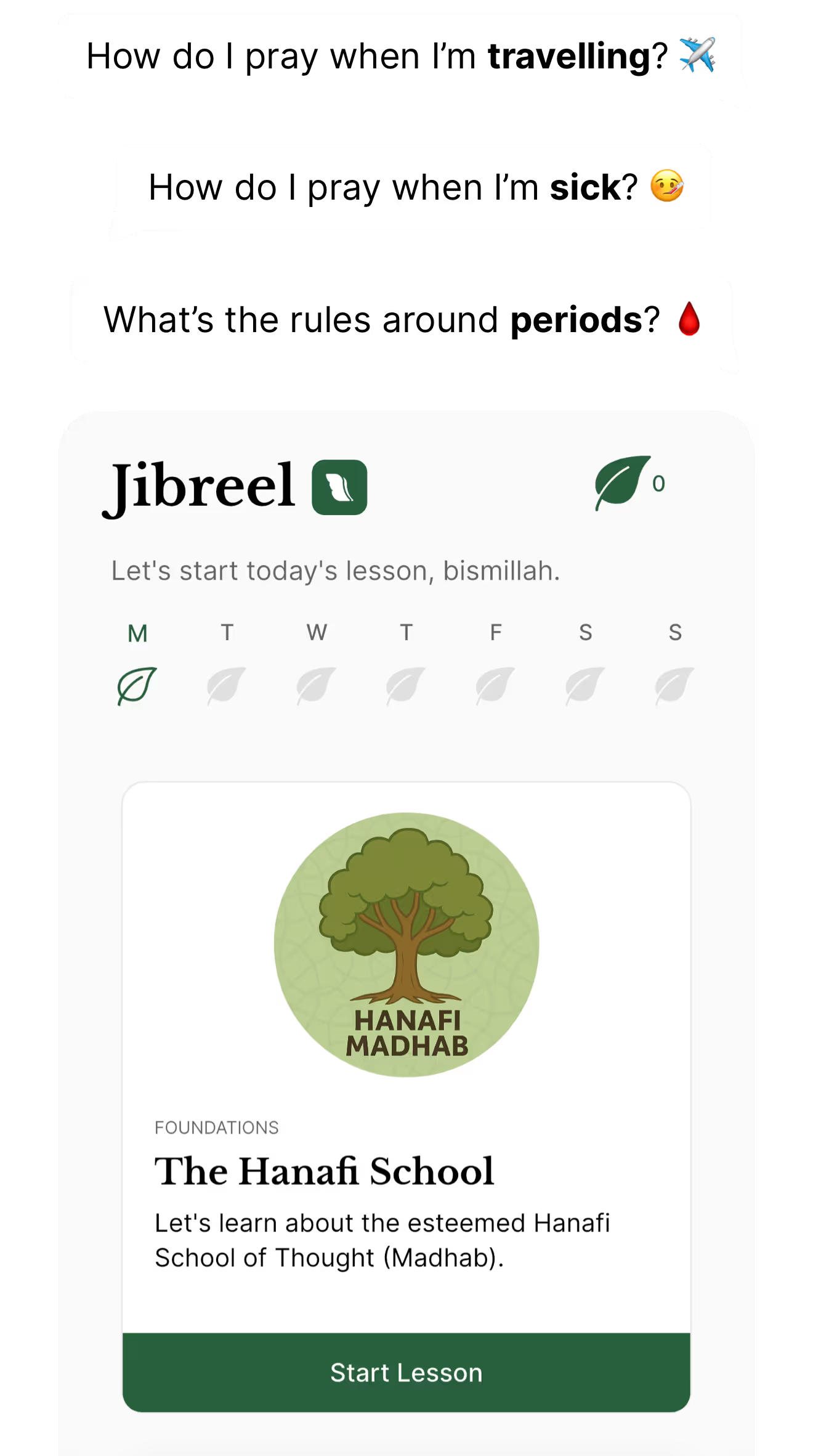If you’re asking “how do I become a better Muslim?”, start small, be consistent, and build daily habits that draw you closer to Allah. Below are seven evidence‑based steps with Qur’anic verses and authentic hadiths, plus simple actions you can begin today.
1) Pray the five daily prayers, on time
Why it matters: Salah anchors your day and protects you from sin. Allah says, “Prayer prohibits immorality and wrongdoing.”
Sunnah proof: When asked which deed is most beloved to Allah, the Prophet ﷺ said: “Prayer at its earliest time.”
How to start (today):
- Download a prayer app (e.g. Pillars)
- Set prayer notifications & reminders
- Tie each prayer to a fixed trigger (e.g., after breakfast = Fajr sunnah + adhkar).
- If you miss, pray as soon as you remember and fix the cause (alarm, commute, scheduling).
2) Read and reflect on the Qur’an every day
Why it matters: The Qur’an is guidance and healing. Recite it “in a measured way.” Even a page or a few verses a day compounds.
Verses to remember:
- “Recite the Qur’an in a measured way.” (73:4)
- “In the remembrance of Allah do hearts find rest.” (13:28)
Sunnah proof: “The best of you are those who learn the Qur’an and teach it.”
How to start (today):
- Pair reading with a consistent time (after Fajr or before sleep).
- Use a mus’haf with translation; jot one action point per session.
- Memorize short passages first; quality over speed
- Prioritise consitency over quantity.
- Use an app like Quranly to build this small but powerful daily habit
3) Learn obligatory Islamic knowledge (use Jibreel App)
Why it matters: Sound knowledge guides sound action. The Prophet ﷺ said: “Whoever takes a path to seek knowledge, Allah makes the path to Paradise easy for him.”
Make it practical with Jibreel:
Use the Jibreel app to cover your fard ayn (obligatory Islamic knowledge) and importantly begin building a daily habit of seeking Islamic knowledge—short lessons, quizzes, and spaced repetition to lock in core beliefs, worship, and manners.
Daily target: 5 minutes of structured learning per day
4) Improve character and manners (akhlaq)
Why it matters: Good character is weighty on the Day of Judgment. The Prophet ﷺ said: “Nothing is heavier on the scale than good character.”
Guard your tongue: “Whoever believes in Allah and the Last Day should speak good or remain silent.”
How to start (today):
- Set one “akhlaq focus” per week: truthfulness, patience, generosity, keeping ties.
- Pause 3 seconds before replying; choose words that heal, not harm.
- Review your day at night: where did you help or hurt?
5) Make dhikr and dua part of your routine
Why it matters: Dhikr softens hearts and brings tranquility: “By the remembrance of Allah hearts find rest.” (13:28)
Hadith Qudsi: “I am as My servant expects of Me, and I am with him when he remembers Me.”
Best simple dhikr: “The best remembrance is: ‘La ilaha illa Allah.’”
How to start (today):
- Morning/evening adhkar blocks (a good trick is to do it after every prayer).
- Walking or commuting? Repeat La ilaha illa Allah, Subhanallah, Alhamdulillah, Allahu Akbar.
- Keep a dua list (parents, guidance, health, halal provision, steadfastness).
6) Give charity and serve people regularly
Why it matters: Charity multiplies. Allah compares it to a grain that sprouts “seven ears, in each a hundred grains.” (2:261)
Sunnah proof: “Protect yourself from the Fire even with half a date.” Even small acts count.
How to start (today):
- Automate a small weekly sadaqah.
- Add micro‑charity: a kind word, a smile, carrying groceries, sharing knowledge.
- Volunteer 1 hour/week in your local masjid or community
- Remember even a smile is an act of charity in Islam!
7) Repent often, plan small consistent habits, and choose good company
Repentance: Allah says, “Do not lose hope in Allah’s mercy; Allah forgives all sins.” (39:53)
And the Prophet ﷺ taught that Allah is more delighted with a servant’s repentance than a man who finds his lost camel in the desert.
Consistency: “The most beloved deeds to Allah are those done regularly, even if small.”
Company: “A person is upon the religion of his close friend, so let him look at whom he befriends.” Also, “Be with the truthful.” (9:119)
How to start (today):
- Daily istighfar target (e.g., 100× Astaghfirullah)
- Use a simple habit tracker (paper or app) for Salah on time, Qur’an, dhikr, sadaqah, study.
- Join a weekly circle or online study group; unfollow feeds that drag you down.
A simple weekly plan (you can copy/paste into Notes)
- Daily:
- Salah on time
- Qur’an (a very verses a day ... work your way up to 1–2 pages)
- Jibreel app daily lesson
- Morning/evening adhkar
- One akhlaq focus check
- Fri:
- Extra salawat
- Read Surah Al‑Kahf
- Weekly sadaqah (e.g. after jumua prayer)
- Sat/Sun:
- Attend a class/halaqah
- Family time/visiting relatives
- Monthly:
- Review progress, set one new micro‑habit
FAQ: Becoming a better Muslim
1) How long will it take to “feel” better in my faith?
Progress often follows consistency. The Prophet ﷺ emphasized small, regular deeds over sporadic bursts. Track 30 days of the seven steps above and reassess.
2) What if I’ve missed many prayers or made mistakes?
Return immediately; keep praying now and make up what you reasonably can. Never despair—“Do not lose hope in Allah’s mercy.” (39:53)
3) Is using an app like Jibreel really helpful?
Yes—structured, bite‑size learning removes friction. Seeking knowledge has clear virtue: “Whoever takes a path to obtain knowledge, Allah makes the path to Paradise easy for him.”
4) I struggle with anxiety—what dhikr should I focus on?
Regular remembrance calms the heart: “By the remembrance of Allah hearts find rest.” (13:28). Start with La ilaha illa Allah often throughout the day.
5) What’s one action I can start today?
Pray the next prayer on time. It’s the most beloved deed at its time.
Final encouragement
Start with the next prayer on time, read one page of Qur’an, and complete one Jibreel lesson. Keep it simple, consistent, and sincere—Allah will open the way. “I am as My servant expects of Me, and I am with him when he remembers Me.”









